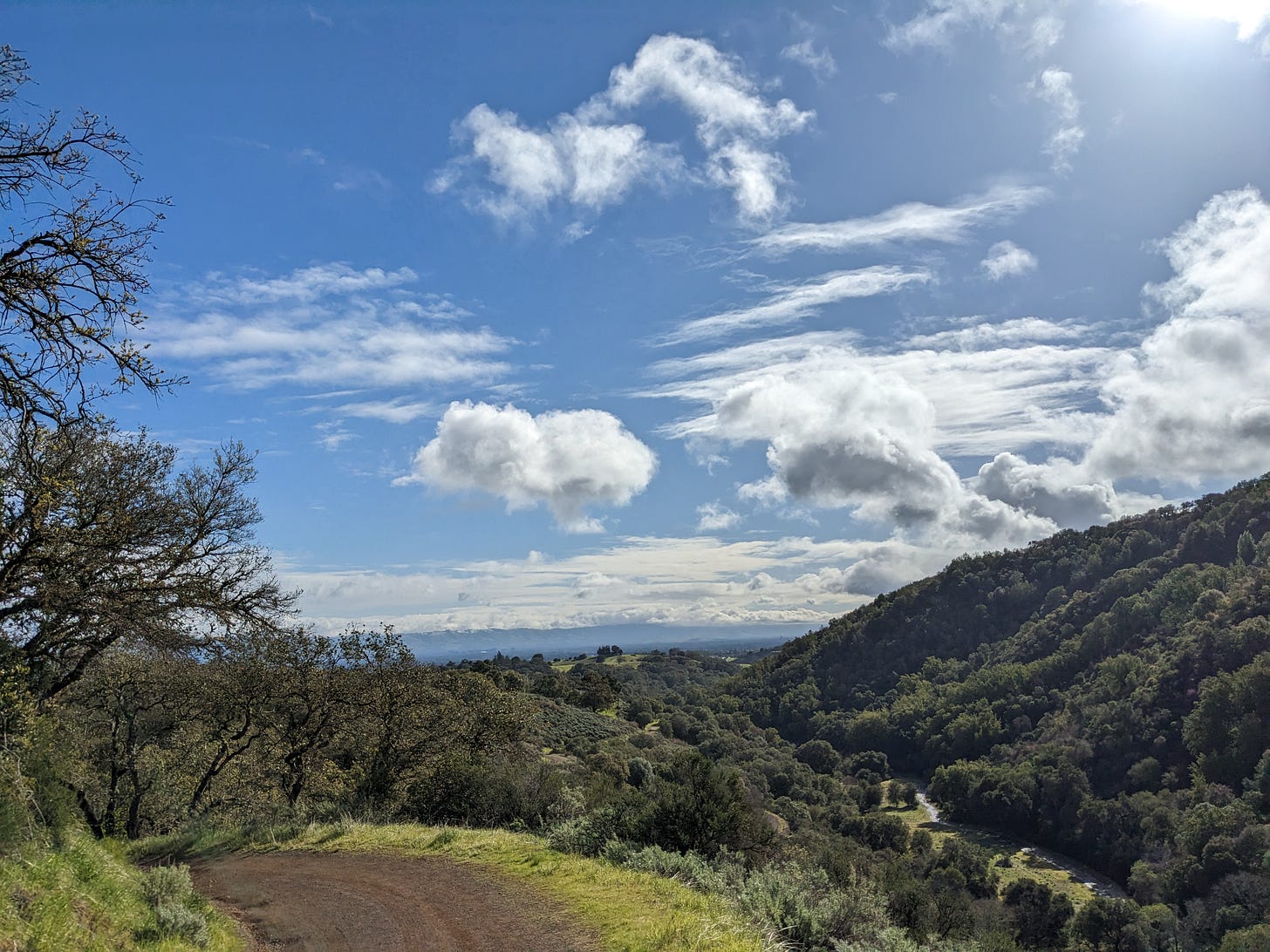A couple requests
February 25, 2023
This is the Too Many Trees newsletter, where I share what I’ve been writing and reading in the realm of leadership and personal development. My executive coaching practice is centered around the idea that we are more effective in moving towards our goals when we become more conscious and intentional in focusing our time and attention, and learn how our unconscious patterns are holding us back. If you know somebody that could benefit from my perspective, please forward this to them or let them know they can set up a free intro chat with me.
It’s been a long week, so instead of commentary, I’ll make a request and share two offers:
Many people have told me that they read my LinkedIn posts, and find them insightful and helpful. If that describes you, please like my posts when you see them - the more reactions each post gets, the more people get to see it, thanks to the algorithm giving engaging content extra visibility. Liking a post means that more people can benefit from what I’m sharing.
I’m considering putting together a discussion group for new coaches to learn from each other and from me. Contact me for details if interested.
I’m starting an online book club, probably meeting quarterly, after having a lively discussion with several clients about Radical Friendship. Again, contact me for details if interested.
Thanks!
And now for the normal personal development content…
Blog: I summarized Us: Getting Past You and Me to Build a More Loving Relationship, by Terrence Real. This book centers around the simple idea that when we were children, we adapted to our environment to get our emotional needs met. We used our parents as role models, and either mirrored their tendencies, or rebelled against their tendencies. This leads to unproductive, selfish behaviors getting passed on from generation to generation; Real calls this acting as our Adaptive Child selves, which are borne out of survival fight-or-flight instincts adapted to a world of scarcity and selfishness. But when we can interrupt those learned reactions, we can instead choose to act as our Wise Adult selves and offer opportunities to connect.
LinkedIn: These are ideas that have helped my clients (or myself), and that I share via LinkedIn to help a wider audience.
Relational, not transactional. Much of our capitalist culture runs on a transactional basis where we treat each interaction as a one-off where we only think of our own benefit. But we could also treat each transaction as a means to create connection, where we expect to live in relationship with this person. How would you act differently if you treated every interaction relationally, as if the other person would be part of your life going forward?
One nervous system at a time. Deb Dana said this in a Coaches Rising podcast about polyvagal theory, and I loved it as a reminder of how change actually happens. Even when we feel helpless in the face of systemic change, we can regulate our own nervous system, and bring ourselves into an alignment of open connection with others. And since emotions are contagious, our calm groundedness can help others return to their best selves.
Articles and resources I’ve found interesting:
The Tyranny of Faux Self-Care, another great piece from Anne Helen Petersen, where her interviewee Dr. Pooja Lakshmin points out that while taking care of ourselves is great,
It’s faux because it’s not sustainable, not self-directed. It’s faux because it exonerates the oppressive social structures that come from every direction and conspire with each other — patriarchy, white supremacy, toxic capitalism. It’s faux because it places the burden on the individual instead of calling for systems reform. This of course all comes back to race, class and privilege.
Insights from Experience Institute. My friends at EI shared some of their learnings from working with companies, universities and students. Highlights for me were “People flock to where they’ll grow” and “Every inflection point is a reflection point”, but the whole report is worth a read.
The Maze is in the Mouse, by Praveen Seshadri. Several people have asked me about this article since I was at Google for ten years. I agree with most of what Seshadri writes, and I believe one of the worst outcomes of those symptoms was that the innovative change-makers (like Noam Bardin) left Google because they prioritized external impact over internal promotion metrics. Those staying behind were those who focused on their own individual careers, and then you got more such people who were at Google for advancing themselves, not Google.
Thanks for reading! See you in a couple weeks!


Eric- I appreciate you introducing me to the Maze is in the Mouse, which admittedly I was unfamiliar with. This would be a good read. Hope you're well this week? Cheers, -Thalia